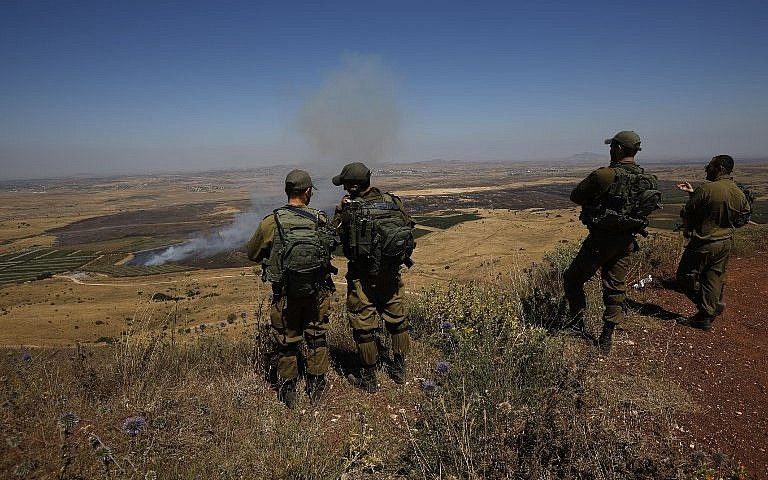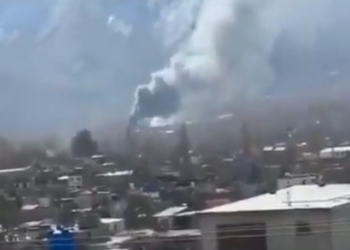Jerusalem/Damascus: Israel will broaden its military operations in Syria to target advanced weapons storage facilities, Israeli officials said Monday.
Speaking on condition of anonymity, a government official told Xinhua that Israel is concerned those weapons could fall into the hands of militant groups in Syria following the rapid fall of President Bashar al-Assad’s government on Sunday.
Airstrikes are expected to continue in the coming days, the official said, Xinhua news agency reported.
Meanwhile, Israeli Defense Minister Israel Katz said the Israeli military has been directed to “destroy heavy strategic weapons throughout Syria, including surface-to-air missiles, air defense systems, surface-to-surface missiles, cruise missiles, long-range rockets, and coastal missiles.”
Speaking to reporters on Monday, Israeli Foreign Minister Gideon Sa’ar said militants in Syria crossed into the buffer zone between Syria and Israel over the weekend, violating the Agreement on Disengagement signed in 1974 between Israel and Syria.
The militants also attacked positions of the United Nations Disengagement Observer Force (UNDOF), which monitors the agreement near the border, Sa’ar said.
“In response, and given the threat to our communities in the Golan Heights, the IDF (Israel Defense Forces) carried out a targeted and temporary operation to take control of areas near the border,” he said.
The Israeli army also launched strikes targeting “strategic weapons systems, residual chemical weapons capabilities, and long-range missiles and rockets” in Syria to prevent them from falling into the hands of “extremist elements,” he added.
He claimed that Israel does not aim to interfere in Syria’s internal politics.
Also on Monday, the Israel Defense Forces (IDF) said in a statement that paratroopers have been stationed in the demilitarized buffer zone between Israel and Syria at “strategic vantage points” and that it has struck “dozens” of targets recently to “neutralize” advanced weapons, including anti-aircraft systems, in Syria.
Israeli commando units and other troops have established new land barriers along the border in the Israeli-occupied Golan Heights and seized a Syrian army outpost on Mount Hermon, it said, adding that engineering, infantry, and armored forces are also deployed along the border.
Overall, forces are deployed from Mount Hermon to the border triangle where Israel, Syria, and Lebanon meet, it said.
Israel’s state-owned Kan TV reported that Syrian army outposts and bases, along with their stored weaponry, have been abandoned and destroyed by the IDF and that UNDOF has not evacuated.
On Monday, Syrian media outlets reported that Israeli airstrikes struck arms warehouses in the village of Ain Menin in the al-Tal area in southern Syria, sites north of al-Qarah in Rural Damascus in southwestern Syria, and “al-Kamm” depots near the town of Mahja in the northern countryside of Daraa province in southwestern Syria.
The strikes reportedly took place over a span of hours and also included tunnels once believed to connect Syria with neighboring Lebanon.
In Damascus, a Xinhua correspondent witnessed Israeli warplanes flying overhead.
In a video statement released by his office on Sunday, Israeli Prime Minister Benjamin Netanyahu said he had ordered the military to take control of the positions temporarily to ensure they would not fall into the hands of the militant groups led by Hayat Tahrir al-Sham, which waged a major offensive from northern Syria since Nov. 27 and had since swept southwards through government-held areas, capturing the capital Damascus within 12 days.
Netanyahu claimed in the video that the UN-monitored 1974 agreement had “collapsed.”
Earlier in the day, Syrian online media outlet Sawt al-Asima reported that Muhammad al-Bashir, born in 1983 and an electrical engineer and head of the “Syrian Salvation Government” opposition group in Idlib under the aegis of the HTS, has been tasked with forming a new Syrian government.
(IANS)
















